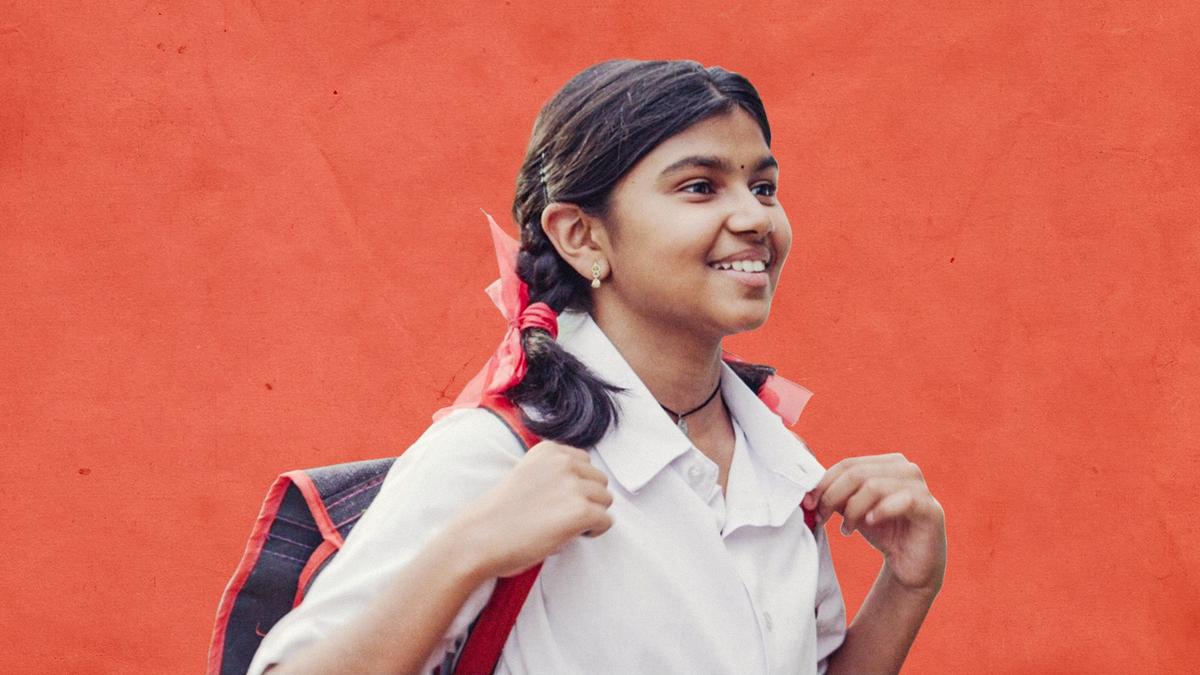
‘Gandhi Tatha Chettu’ movie review: A heartfelt tribute to Gandhian principles and rural innocence
The Hindu
"Gandhi Tatha Chettu" explores Gandhian principles through a simple yet impactful narrative set in a rural Telangana village.
Early in the Telugu film Gandhi Tatha Chettu, Ramachandraiah (Anand Chakrapani) tells his granddaughter Gandhi (Sukriti Veni Bandreddi), “Prema tho gelavalante time padthadi” (it takes time to win through love). His statement follows her question about something she heard from her friends — that India’s independence took longer because of Mahatma Gandhi’s non-violent methods. As the country prepares to celebrate its 76th Republic Day, this film, written and directed by debutant Padmavathi Malladi, seeks to remind audiences of the nearly forgotten Gandhian principles. In one poignant scene, a character even wonders whether Gandhi himself might eventually be forgotten.
On the surface, Gandhi Tatha Chettu seems like a simple story centred on an adolescent protagonist and her friends. Yet, within this narrative framework, the film touches on significant issues such as the decline of agriculture, migration, education, environmental concerns, and gender equity, albeit in small doses.
The story opens with a large neem tree (voiced by Tanikella Bharani) introducing us to a village in Telangana in the year 2000, still untouched by mobile phones and the internet.
The idyllic rural lifestyle of Telangana takes centrestage, with its unhurried pace mirrored by the film itself. The cinematography by Srijitha Cheruvupally and Viswa Devabattula captures the landscape and its people with the detachment of a non-intrusive observer, portraying their way of life with authenticity. The villagers’ lines feel natural and realistic, never resembling scripted dialogue. This indie spirit is sustained throughout most of the film, except during its dramatic final moments.
The story is straightforward: the village’s sugarcane factory is shutting down, leaving farmers, already struggling with dwindling revenue, eager to sell their agricultural land to a proposed chemical factory. The question at the heart of the film is whether Ramachandraiah, the village’s wise and idealistic elder, and his granddaughter Gandhi, named after the Mahatma, can use Gandhian principles to save the neem tree, their family land, and the village.
The first hour progresses predictably, while the second offers a few charming surprises. When Gandhi laments that they cannot stage a salt Satyagraha in the village due to the absence of a sea, a friend suggests an alternative. What follows is a delightful sequence in which Gandhi’s efforts ignite hope among the villagers. Sukriti Veni Bandreddi, along with the ensemble of adolescent actors, including Bhanu Prakash and Nehal Anand, delivers engaging performances. The students’ schoolyard tussles and their camaraderie, despite ideological differences, are presented with refreshing simplicity. Sukriti’s portrayal of Gandhi — balancing innocence, resilience, and vulnerability — is compelling and heartfelt.
The film poses an enduring question: can small, seemingly insignificant actions spark larger change? Gandhi’s journey serves as a reminder that doing one’s bit, however small, can contribute to the bigger picture — much like the mythical squirrel’s role in building the bridge to Lanka.













